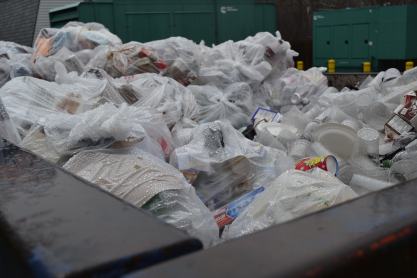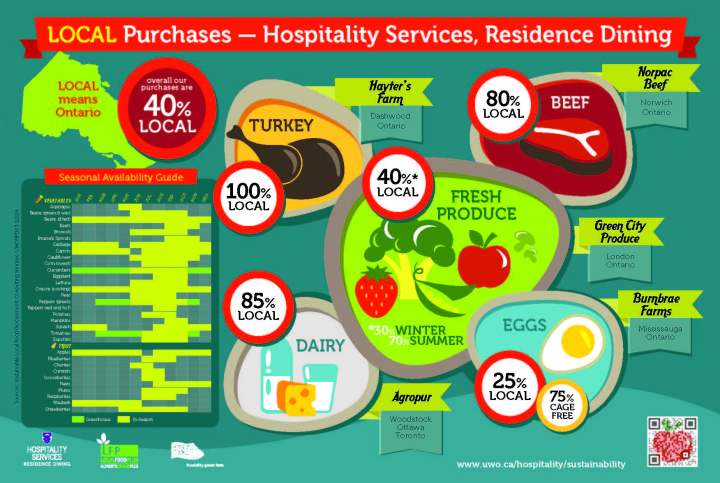Why should you compost?
Seems like a simple enough question, but a generation ago it likely never even crossed the mind of the average person.

As our society moves towards a more eco-friendly state of mind, it almost seems like a no brainer. Along with recycling, composting can play a large part in diverting a majority of the waste we produce every day.
Did you know that 95 per cent of all waste can be diverted from landfills just by recycling and composting alone?
Western University has a population of approximately 30,000 students, not including staff members. In one year alone, Western on-campus residences produce over 200 tons of waste. This number only accounts for 4,000 students, which is 13 per cent of the student population.
So this means that, on average, one student produces approximately 5 tons of waste a year. Multiply that by every student at Western and you get roughly 150,000 tons of waste from students per year. With proper composting and recycling, 142,500 tons of this could be diverted from landfills.
At first glance, it seems like an easy concept to get behind. Simply sort your waste into the right receptacle and then someone will take care of the rest.
Well, in all seriousness, it is that simple. But then this begs the question: what are we doing wrong?
As journalism students we decided to take a closer look. What we found is that, while finding someone who is against composting is not an easy feat, the number of people in the student community actually composting on campus is staggeringly low.
With our research we’re also going to address basic facts about composting that many students may not know. How easy is it to compost, what are the benefits of composting and what options are out there that the average student can take advantage of?

With our work we aim to not only shine a light on how composting is currently being tackled on campus, but also to inform the student community about how they can get on board with Western campus and their plans for the future.
We hope this site helps to inform not only Western students, but also the city of London, on how composting works and the benefits everyone can achieve in doing so.
























